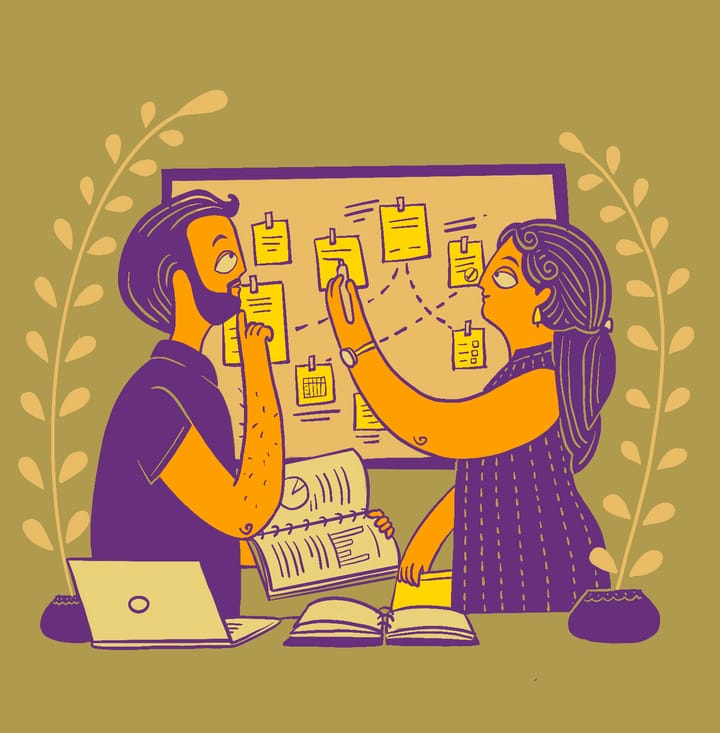Are You Addicted to Work? Here Are Some Tell-Tale Signs.
Far from being a matter of pride, addiction to work can take a toll on your health, relationships, and personal growth

In the age of hustle culture, people believe that it has become necessary to put in long hours at work to be successful. The pandemic has also put pressure on people to hold on to jobs for fear of being unemployed. All of this has created a workforce which is struggling with the unhealthy effects of work addiction.
What is Work Addiction?
Addiction to work is not just about working for long hours. It has been defined as being overly concerned about work and spending too much time and energy on it to the extent that it affects other parts of your life. Medical experts say that excessive devotion to work at the expense of other activities could be indicative of obsessive-compulsive disorder.
Impact of Work Addiction
Working for long hours means that there is no time for anything else. Subjects often feel like they can’t take an evening or weekend off. There is no time to relax or do anything leisurely. Taking a break might make them feel uncomfortable or like they are “wasting time.” High levels of work addiction have been observed to increase anxiety, stress, and depression. This is especially true for people aged 30-59 years.
Many workaholics also face burnout, a state of chronic stress due to excessive work. This negatively affects their sleep quality, mood, eating habits, and energy levels. It can also affect the quality of their relationships with their loved ones.

What Causes People to be Addicted to Work?
Some of the most common reasons for the increase in work addiction are:
- Heavy workload
- Tight deadlines
- Negative work environment
- Financial instability
- Insecurity about one’s job
- Unrealistic work goals
- Placing high importance on productivity
- Comparison with other people
- Wanting to maintain an image as a ‘good worker’
How to Build a Positive Workplace Culture
Signs of Work Addiction
Everyone has faced work-related stress at some point. But work addiction can leave you feeling tired and exhausted nearly all the time. Some people may leave work feeling irritable and anxious. Besides emotional symptoms, you might also notice constant headaches, loss of appetite, pain in the eyes, and stomach problems. These are psychosomatic symptoms caused by the body’s reaction to our emotions.
People who struggle with work addiction also find themselves addicted to other substances or activities. The highest addiction reports are for Internet use and alcohol. These addictions can hurt your life and health. You can use this checklist to see if you might be addicted to work:
- Losing sleep to complete work projects
- Putting in long hours at work even when not needed
- Feeling anxious about failing or making a mistake at work
- Being worried about work performance
- Constantly thinking of work and new tasks
- Working during important personal events
- Not giving enough time to activities outside work
Try Manah's free emotional wellbeing assessment now!
How to Overcome Work Addiction

There are ways to deal with work addiction and have a healthier relationship with work. Here’s what you can do:
1. Practise Self-Compassion
Many workaholics feel guilty about not doing enough or anxious about having too much on their plate. All of these negative feelings also lead to a negative view of themselves. Self-compassion is a way to be kinder to yourself and reduce the negative narrative going on inside your mind. Here are some steps that you can follow to start practising self-compassion.
Self-compassion: Basics and Best Practices
2. Set Aside Time for Therapy
Individual therapy might work for you if you feel uncomfortable opening up to a group. Therapy is a good way to understand if other issues in your personal or professional life are impacting your relationship with work. This mental health assessment can give you clarity and strategies to begin working more healthily.
3. Delegate Work
In a few cases, work addiction might be caused by a large pile-up of tasks and projects. Managing deadlines and completing everything can be a big cause of stress. If you can delegate work to your employees or colleagues it will help to reduce the burden on you. This might take some practice and require some patience on your part.
4. Join a Support Group
Support groups provide a safe and non-judgemental space for people with similar struggles to discuss their experiences. If you are nervous or worried about opening up, you can join in as an observer or a listener. This will help you understand work addiction better and notice its impact. Once you feel more comfortable you can share your experience. You can click here to find a support group that fits your needs.
Learning about work addiction might be overwhelming, but there are many steps you can take to feel better and work better. Remember, work is not your whole life, it is just a part of it.



